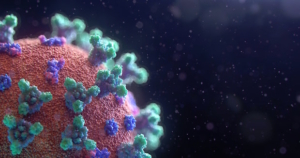
Coronavirus restrictions divide Russian political elite

Despite stubbornly high COVID-19 death rates and the emergence of the Omicron variant, the Russian authorities remain unwilling to introduce unpopular restrictions. The government has proposed several new laws that would make life difficult for the unvaccinated, but it’s not clear if they will ever be passed. The wrangling over the laws is the result of a power struggle among different groups of Russian officials who are attempting to find a way of containing coronavirus without harming President Vladimir Putin’s popularity.
What happened
The State Duma was due to consider Wednesday two new laws on restrictions for unvaccinated Russians — but it never happened. They were first put forward early last month and, under normal circumstances, would have been passed within a week. But one of the bills has been withdrawn, and the second will not be approved until at least mid-January.
- The first bill — on QR-codes in public places — has been the most controversial piece of legislation this year (we wrote more about it here). It does not impose any direct restrictions, instead giving regional governors the right to restrict access to public places for anyone who cannot produce a QR-code proving they have had a coronavirus vaccine. The second bill would stop people without QR-codes from buying tickets on flights, or inter-city trains.
- Both bills were drawn up by the government and their passage seemed to be a formality. But things went wrong immediately after their Nov. 12 presentation to parliament. First, the Duma announced it was sending the QR-code bills to regional parliaments for their approval. Although largely symbolic, this is a rarely used step that was last taken for the legislation on last year’s constitutional reform.
- A week later, Duma speaker Vyacheslav Volodin took another unusual step when he invited people to debate QR-codes on his Telegram channel, which he made publicly accessible for this purpose. In just one day his post attracted 300,000 comments and there are now over 800,000. A significant chunk of these were anti-QR-code comments left by bots, but nobody has totted up the exact numbers
- As the deadline for accepting the laws approached last week, we saw another plot twist. First Putin said Dec. 10 that discussions of the proposals should “proceed without rash decisions”. Three days later, Volodin announced the bill about QR-codes for transport would be temporarily withdrawn following “dialog with the government”. The bill about QR-codes in public places, however, was finally accepted for its first reading in Duma on Wednesday, but was immediately referred back to the regions for another month of discussion. This means the law cannot be enacted before mid-January, and will need to be re-written at least once more.
What does it mean?
As the Russian authorities seek to juggle two tasks — controlling the pandemic and preserving Putin’s popularity — COVID-19 restrictions have become something of a political football in a battle between different elite factions.
- Prime Minister Mikhail Mishustin and Deputy Prime Minister Tatiana Golikova are two of the leading supporters of stricter measures. Their support was described by The Bell’s sources and confirmed in reporting by media outlet Meduza (which has been designated a ‘foreign agent’ by the Russian authorities). During the first coronavirus wave, Mishustin, who became prime minister just two months before the pandemic, faded into the political background (governors were given responsibility for the unpopular restrictions). In effect, Russia’s coronavirus response was led by Moscow Mayor Sergei Sobyanin. However, as a result, Sobyanin’s relationship with Putin deteriorated. Now, Mishustin is coming to the fore.
- The main opposition to the QR-code laws likely came from Volodin (previously first deputy head of the presidential administration with responsibility for domestic politics). From day one, few doubted his offer to debate the plans on Telegram was designed to highlight public discontent. According to Meduza, influential Deputy Prime Minister Andrei Belousov is also opposed to the plans: he fears a negative impact on the economy.
- In the Kremlin, first deputy head of the presidential administration Sergei Kiriyenko (the successor to Volodin) was concerned that imposing QR-codes did not harm Putin’s popularity. As a result, he insisted that responsibility for the law be taken by the government and that Putin then announced mitigating measures, a source told The Bell. And so it came to pass — Putin earned political capital by announcing there will be no travel restrictions before New Year.
The Kremlin has every reason to be cautious about implementing coronavirus restrictions. According tо independent pollster Levada Center, 76 percent of Russians are opposed to QR-codes and 54 percent are against compulsory vaccination. And, despite the best efforts of state propaganda, 36 percent of Russians say they won’t have the jab (although this number is coming down — it used to be over 60 percent). A separate poll found that 24 percent of Russians were ready to take part in protests against coronavirus restrictions.
Why the world should care: Russia’s attempts to introduce coronavirus restrictions show how even an authoritarian regime is limited when it wants to impose something unpopular. When Russia raised the pension age in 2018, the authorities ignored widespread opposition and forced through the measures — for some reason, they are unwilling to do the same this time around.




